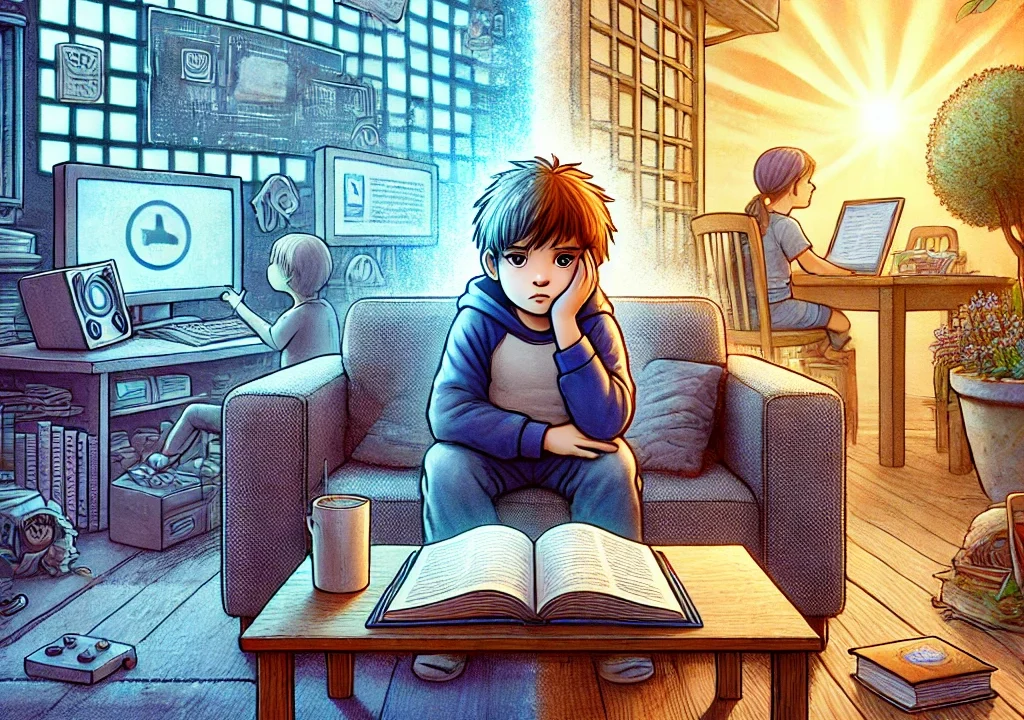As parents, we often look at bad habits like screen time, poor diet, or irregular sleep as the root of our children’s emotional struggles. But did you know that your child’s reading habits—or lack thereof—could be playing a bigger role than you think? Recent research suggests a surprising connection between emotional health and reading routines, and it might just be the key to improving your child’s mood and breaking negative behaviors.
1. The Emotional Impact of Reading
Reading isn’t just an academic skill, it’s also an emotional one. Studies have shown that children who engage regularly with books develop stronger emotional intelligence, empathy, and the ability to manage their feelings. When children dive into a story, they experience characters’ emotions, which helps them understand their own. Books offer a safe space for kids to explore emotions they might struggle with in real life.
However, when reading is not part of their routine, children may miss out on these emotional benefits. Without the ability to process complex feelings through stories, children might find it harder to navigate emotions like anger, frustration, or sadness, leading to bad moods or even behavioral issues.
2. Breaking the Cycle of Bad Habits
Bad habits like excessive screen time or lack of focus may often be symptoms of emotional stress. When kids feel overwhelmed by their emotions, they may turn to screens or distractions as a form of escape. Here’s where reading comes into play: introducing consistent reading routines helps shift children’s focus to healthier habits, giving them tools to deal with anxiety or stress in a constructive way.
For younger kids, picture books that focus on managing emotions, like “The Colour Monster” or “When Sophie Gets Angry”, can be extremely helpful. For older children, books that reflect their personal experiences or struggles offer a way to feel seen and understood, while providing practical ways to overcome challenges.
3. Choosing the Right Books for Emotional Growth
The key to using reading as a tool for emotional health is selecting the right kind of books. It’s essential to offer age-appropriate stories that challenge children emotionally but also give them solutions. Books that address topics like anger, fear, or empathy can foster emotional resilience.
For instance, UK children’s author Malorie Blackman’s “Noughts & Crosses” series doesn’t just provide entertainment but also delves into complex themes like racism and inequality, allowing older children to engage with social justice and empathy in a way that fosters personal growth.
4. How Reading Can Break Bad Habits
Introducing reading as a consistent part of your child’s daily routine can also serve as a great way to limit screen time, reduce anxiety, and even improve sleep. Reading before bed, for example, can help calm the mind and set a relaxing tone for the night, replacing the more stimulating activities of screens that can lead to restlessness.
Furthermore, discussing the books your child reads opens the door for conversations about emotions, allowing parents to address bad habits like avoidance or anger in a gentle, indirect way.
5. Final Thoughts: Transforming Emotional Health Through Reading
While we might be quick to blame screen addiction or junk food for our child’s emotional ups and downs, we should also consider the power of reading as an overlooked solution. Regular reading encourages emotional expression, fosters empathy, and gives children the tools they need to handle tough situations.
So, is your child’s bad mood linked to their reading habits? Absolutely—and the good news is that by prioritizing reading, you can help your child grow emotionally and break negative behaviors, creating a healthier, happier future.
“Get started today”—find books that speak to your child’s interests and emotions, and watch as their mood and habits improve!




0 Comments